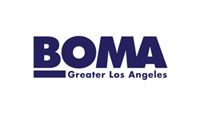
Managing commercial property in Los Angeles isn’t just about keeping the lights on and tenants happy — it’s also about dodging legal landmines that can blow up your business faster than a faulty HVAC unit in July. LA’s property management scene is as dynamic as its traffic, and navigating the legal landscape requires a sharp eye and a proactive mindset. Here are some key legal pitfalls you’ll want to avoid if you aim to thrive in the Los Angeles commercial real estate market.
1. Ignoring Zoning Laws — A Recipe for Disaster
Zoning laws in LA are as complicated as ordering coffee at a hipster café. “I’d like a mixed-use property with a side of commercial-retail blend, hold the residential restrictions.” Sound confusing? That’s because it is. Los Angeles has some of the strictest zoning laws in the nation, and violating them can lead to hefty fines or even forced closure.
Pro Tip: Always check the city’s zoning ordinances before signing a lease or starting a major renovation. The LA Department of City Planning offers resources to help property managers stay compliant.
2. Skipping ADA Compliance — A Costly Oversight
The Americans with Disabilities Act (ADA) requires that commercial properties be accessible to people with disabilities. In LA, this isn’t just a moral responsibility — it’s a legal necessity. Property owners have faced lawsuits over missing wheelchair ramps, inaccessible restrooms, and inadequate parking accommodations.
Pro Tip: Conduct an ADA audit of your property to identify potential compliance gaps. Investing in upgrades now will save you from costly lawsuits later.
3. Mismanaging Security Protocols — Liability Looms Large
In a city like LA, security is a hot-button issue. If your property lacks sufficient security measures — such as lighting, cameras, or controlled access — you could face legal liability in the event of criminal activity on-site.
Pro Tip: Implement a comprehensive security plan, including well-lit areas, robust surveillance systems, and clear emergency procedures. This not only protects tenants but also reduces your legal exposure.
4. Lease Agreement Ambiguities — The Fine Print Fiasco
A vague or poorly drafted lease is a recipe for tenant disputes. Ambiguities about maintenance responsibilities, operating expenses, or renewal terms can quickly land you in court.
Pro Tip: Work with an experienced real estate attorney to draft clear, comprehensive lease agreements. Define everything — from who changes light bulbs to how disputes are handled — to avoid confusion.
5. Failing to Handle Environmental Regulations
In eco-conscious LA, environmental standards are no joke. Whether you’re dealing with hazardous materials, energy efficiency rules, or stormwater management, ignoring these regulations can land you in legal hot water.
Pro Tip: Stay informed about California’s strict environmental regulations. Conduct regular environmental audits and keep documentation organized in case inspectors come knocking.
6. Overlooking Tenant Rights and Eviction Laws
Tenant rights in Los Angeles are robust, and eviction laws favor careful documentation and due process. Attempting to bypass legal protocols can result in costly delays or fines.
Pro Tip: Before initiating eviction proceedings, understand LA’s Rent Stabilization Ordinance (RSO) and local tenant protections. Consulting a qualified attorney before serving notices is always wise.
7. Ignoring Fire and Building Codes
Nothing turns a profitable property into a financial sinkhole faster than failing a building inspection. LA has strict fire safety and building codes that require routine inspections, updated systems, and proper documentation.
Pro Tip: Schedule routine property inspections, and ensure fire extinguishers, alarms, and emergency exits meet all codes. Prevention is far cheaper than remediation.
Conclusion
Managing commercial real estate in Los Angeles is rewarding — but only if you keep your legal game strong. From zoning tangles to lease loopholes, ignoring these pitfalls can result in costly mistakes. By staying proactive, partnering with legal professionals, and keeping your compliance checklist up to date, you’ll keep your property thriving — and your stress levels in check. After all, you’ve got enough to worry about — like where to park during rush hour.


